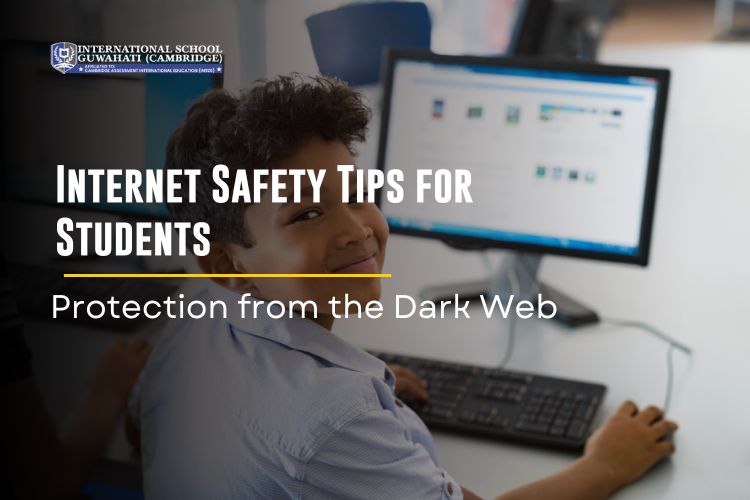![]()
With the advent of the internet, came the concept of internet safety. But let’s ask ourselves one more time – are we really paying any mind to staying safe online? Are we following the protocols the renowned organisations of the world set for safe browsing? If you are looking for a practical answer, it is no, we don’t.
In the past few years, there have been more risks to cyber security around the world. Cybercriminals took advantage of networks that weren’t set up correctly as businesses moved employees to work from home during the pandemic. In 2020, 358% more malware strikes happened than in 2019.
From this point on, cyberattacks around the world rose by 125% until 2021. In 2022, businesses and people were still being threatened by more and more cyberattacks.
Internet for School Students: Staying Safe, Staying Aware!

The increasing involvement of the internet in the academics of children is a big leap towards modernising education. But, it comes with the looming danger of unprotected exposure to the world of web.
There is no denying the fact that the internet is crawling with individuals who live to loot, cheat, and expose you. And thus, students being unaware of these happenings, fall easy prey to these criminals.
Here are the main disadvantages of the internet for the school-goers.
- Addiction and Distraction
- Cyberbullying and Online Harassment
- Decreased Physical Activity and Increased Sedentary Lifestyle
- Poor Time Management and Procrastination
- Increased Financial Burden
Tips for Students’ Internet Safety

Just because we mention the word ‘students’, doesn’t have to mean that internet safety for them starts and ends in school. Today, the internet is available to students more at home than at school. This extrapolates that parents must be aware of the dark side of the internet and how to safeguard their children from it.
Here are a few well-researched and proven tips for parents, teachers, as well as students to be safe when exposed to the internet.
- Don’t post any picture of yourself without your parent’s consent: Location codes can show where and when a picture was taken, even if it looks like it’s safe to post. This can give away personal information like your home or school. Talk to a parent or guardian before you share or post pictures online.
- Beware of online contests and giveaways: Scammers often get your personal information from contests and free stuff. If there is a “countdown clock” or some other sign that you need to act quickly. Do not click on links, download attachments, or give out personal information like your name, phone number, address, passwords, etc. without first getting permission from a parent or adult.
- Don’t download random links and files: Viruses and other bad software can be added to attachments, links, software, and other downloads. This software can damage your computer or phone or steal your personal information. Don’t trust anyone with links or files that you don’t know.
- Never agree to meet someone you met online: It’s a shame that some people try to be someone they’re not. Even if you’ve talked to someone for a long time, it’s best not to agree to meet them in person. Talk to an adult about meeting up with someone you met online if you really want to. They can help you figure out the best way to do it.
- If exposed somehow, seek someone’s help immediately: Scammers might try to scare you into giving them personal information or clicking on a link. Keep in mind that you don’t have to answer anyone online or click anything you don’t want to click if you ever feel dangerous or uncomfortable.
Recap
Teaching kids how to use technology safely and well means teaching them about online safety and digital citizenship. We stumble upon hundreds of cyberbullying and fraud cases everyday. The very point of these kinds of news reaching us from the far ends of the world means that we have to pay attention to internet safety for teens as well as others. The internet is a powerful tool that can pose a threat as well as become a blessing for us all. Choose your path and make sure you don’t fall prey to these online blunders.
Also Read: The Incredible Importance of Poetry Writing for Students.










